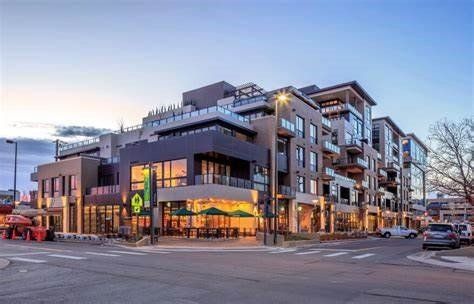
The Importance of Due Diligence before Purchasing a Large Residential Development
Compliance with Accessibility Requirements

When conducting zoning due diligence for a large acquisition, issues often arise at the intersection between land use matters promulgated by the local zoning ordinance and accessibility matters, often regulated by federal laws and regulations.
Shapiro & Associates Law had the great pleasure of assisting an institutional investor in conducting due diligence relative to the future acquisition of over 300 residential units in northern Cook County in consultation with experts in accessible construction such as: architects, builders and attorneys. When undergoing due diligence for the purchase of this or any other large residential development, there are several general considerations which should be reviewed. A few of the most pertinent sources to review include: Federal Housing Guidelines, the American Disabilities Act and the 2012 International Building Code (“ IBC
”).
First, consider the Fair Housing Amendments Act (“FHAA”). While the FHAA’s guidelines do not mandate a specific number or percentage of units which must be handicap accessible and/or adaptable in a multi-family apartment development, the IBC does. The IBC requires a certain number of units within multifamily developments to be handicap accessible and 20% must be handicap adaptable. To complicate matters further, the IBC does not clearly distinguish between accessible
and adaptable
units and only provides Table 1107.6.1.1 for the purpose of determining required accessible dwelling units. As such, it is critical to confirm whether the local municipality has adopted the IBC. Additionally, according to the Illinois Administrative Code, a multifamily residential property “shall provide 20%, or at least one, whichever is greater, of the dwelling units as adaptable.
If it is determined that the Subject Property does not contain the required number of handicap accessible or handicap adaptable units then, under the FHAA, the original owner may face liability. However, it is likely that a successor owner will not be held liable for the Subject Property’s prior noncompliant construction and/or design. Illinois courts support the opinion that a successor owner of a property who was uninvolved with the FHAA nonconforming construction
and/or design
is not liable. Doering v. Pontarelli Builders
, Inc., 2001 U.S. Dist. LEXIS 18856. See also, U.S. v. Hartz Construction Company
, Inc., 1998 U.S. Dist. LEXIS 973, 1998 WL 42265 (N.D.Ill. Jan. 28 1998). Moreover, Question 56 of the Joint Statement of the Department of Housing and Urban Development and the Department of Justice, Accessibility (Design and Construction) Requirements for Covered Multifamily Dwellings Under the Fair Housing Act
, April 30, 2013, concludes that only a person or entity involved in the design and/or construction of the property may be sued for violations of the FHAA accessibility requirements.
Therefore, if neither a purchaser nor any of its affiliated entities, were involved in any purported noncompliant design and/or construction of the Subject Property, neither can be held liable for violating FHAA’s design and construction requirements. However, should a purchaser close on the Subject Property and courts find FHAA violations, it is possible, albeit unlikely, that the purchaser could still be brought into a lawsuit solely as a necessary party to provide authority to remedy the violations.
As such, comprehensive due diligence, including a review of accessibility, should underly any purchase of residential properties. For more information or consultation on the due diligence process, please contact our attorneys at Shapiro & Associates Law with any questions.

CONTACT US TODAY
Contact Us
We will get back to you as soon as possible.
Please try again later.
LOCATION
570 Lake Cook Road, Unit 119
Deerfield, IL 60015
Shapiro & Associates Law | All Rights Reserved |
Created by Olive + Ash.
Managed by Olive Street Design.









